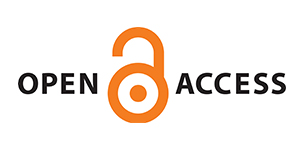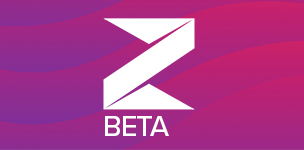Frankfurt Book Fair – FRANKFURT, Germany, 11th October 2018 – Zendy has been created with the aim to radically facilitate access to academic literature; it sees the light today in the form of a beta release. Zendy has been developed by Knowledge E in a growing collaboration with academic researchers, students, institutions and publishers.
“By addressing the key challenges that we face through traditional ways of accessing academic literature, Zendy serves to provide peace of mind, a zen day, for all researchers and students”, says Kamran Kardan, CEO at Knowledge E.
Many academics feel the opposite of zen on most days – overwhelmed by the sheer availability of knowledge hidden in not-so-easily-accessible nooks and crannies of the vast body of academic publishing output, unable to retrieve just that one piece of available quality research that solves a problem, enables a discovery, enlightens a hungry mind, broadens horizons, opens new doors and – a bit further down the line – changes the world for the better. Pitfalls are plenty, many of which revolve around discoverability, reliability and trustworthiness of sources.
Martin Jagerhorn, Chief Innovation Officer at Knowledge E, outlines the objectives of Zendy in more detail. “We have set out to ensure that Zendy provides an outstanding user experience. Typically, there is a complex path towards the full text – going across different sites and several clicks before you can finally download the full-text article. Our ambition is to ensure that the full-text material can be accessed directly for all articles on Zendy. Currently, we have only achieved this for a small fraction of the publication records.”
Dr. Tanguy Pierog, who is a Particle Physics Researcher at Karlsruhe Institute of Technology in Germany and a part of the beta users providing input to the development process, explains that: “You feel that this new service has been designed in close collaboration with the research community. Zendy is already incredibly intuitive and easy to use, and will save us valuable time for accessing relevant literature and let us focus more on the actual research.”
Furthermore, the content will be reviewed based on a set of quality criteria to ensure that it is reliable and of high quality, in particular, making sure that there will be no content from any predatory publishers. This is a major undertaking, which will take time before it becomes available on Zendy, but it will be crucial for researchers and students to fully trust the content and be able to progress their work more effectively.
The third pillar of Zendy, next to an outstanding user experience and high-quality content, is to offer an affordable access to paid content. While the Open Access material will stay free for everyone on Zendy, the ambition is to enable anyone to access paid content for a modest subscription fee through Zendy Premium. Martin adds: “We invite all publishers to join the collaboration to support the vision for Zendy as we believe this will be important to academics globally, but particularly in developing countries, where universities commonly cannot afford to subscribe to many of the key databases required for quality research and studies. Zendy will in this way facilitate the democratization of access to knowledge, which we know is key to learning”.
Even without the paid content, Zendy realizes the dormant power in openly accessible research that might not quite have made its way to end users in all its vastness until now. Already containing more than 100 million publications from over 20,000 peer-reviewed journals, Zendy channels this impressive quantity of data to anyone and anywhere, and to be consumed online or be downloaded.
About Knowledge E
Established in 2012, Knowledge E’s name was fast to become synonymous with collaboration, professionalism and innovation. Head-quartered in Dubai, United Arab Emirates, and supported by a team of 30 highly engaged professionals, Knowledge E works passionately with all types of organisations and government entities within the research and education sector to support their continued innovation and development by providing them with leading expertise, information resources and software solutions. Knowledge E’s three core offerings are the 3D’s; ‘Discover’, ‘Develop’ and ‘Disseminate’. ‘Discover’ through the KnE Digital Library Solutions for research literature discovery, ‘Develop’ through the KnE Learning Services, supporting capacity building and skills development within academia and ‘Disseminate’ through the KnE Publishing Services and the platform for Open Access publishing and indexing of regional journals and conference proceedings. www.knowledgee.com


